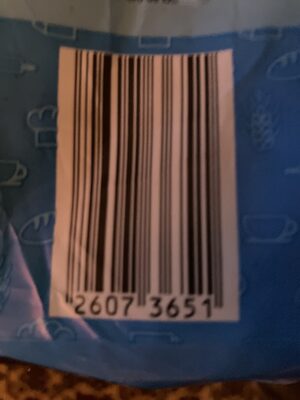
Barcode: 26073651
10 pains au lait
DOUBTFUL
📝 Reason: The product contains ingredients with Doubtful status due to unspecified sources and the presence of alcohol in natural flavor, making the overall product Doubtful. Islamic sources emphasize the importance of knowing the source of ingredients to ensure Halal compliance (Quran 5:3).
🏷️ Category: Plant Based Foods And Beverages, Plant Based Foods, Snacks, Breakfasts, Cereals And Potatoes, Sweet Snacks, Sweet Pastries And Pies, Breads, Viennoiseries, Milk Bread Rolls, Fr:Pains Au Lait Aux Oeufs Frais
📄 Certificates: Green Dot, Made In France, Eco Emballages
Ingredients:
Details
Understanding the Halal Status of 10 Pains au Lait
10 Pains au Lait, a popular delicacy, entices with its sweet aroma and delicate texture. However, for many consumers, determining whether a product is Halal is crucial. In this post, we will thoroughly explore the Halal status of 10 Pains au Lait and the implications of its ingredients.
What Does ‘Halal’ Mean?
‘Halal’ is an Arabic term that means permissible in Islam. Foods and products must meet strict guidelines to be considered Halal. The source of every ingredient plays a pivotal role in ensuring Halal compliance, as highlighted in the Quran (5:3).
Ingredients Analysis
Here’s a detailed breakdown of the ingredients found in 10 Pains au Lait:
- Wheat flour: A plant-based ingredient, generally considered Halal.
- Sugar: This is also a plant-based ingredient and is universally recognized as Halal.
- Water: An essential component in life and universally Halal.
- Fresh whole eggs: Typically Halal unless they are contaminated.
- Rapeseed oil: A plant-based oil that is generally Halal.
- Concentrated butter: The source of milk is unspecified, raising a Doubtful status without Halal certification.
- Mono- and diglycerides of fatty acids (E471): Derived from fats; the source is unspecified, leading to a Doubtful classification.
- Sodium stearoyl lactylate (E481): Also derived from fats and not certified Halal, it falls into the Doubtful category.
- Salt: A mineral that is universally Halal.
- Yeast: A microorganism that is generally considered Halal.
- Skim milk powder: As the source is unspecified, it is classified as Doubtful without a Halal certification.
- Wheat gluten: A plant-based ingredient, generally Halal.
- Natural flavor (contains alcohol): This ingredient is problematic as it includes alcohol, rendering it Haram (forbidden).
- Natural flavor: The source is not specified, raising concerns about its Halal status. Classified as Doubtful.
- Tara gum (E417): A plant-based thickener, generally considered Halal.
- Ascorbic acid (E300): Vitamin C, which is universally regarded as Halal.
- Carotenoids (E160a): A plant-based coloring and typically Halal.
Key Concerns
The primary concern regarding the Halal status of 10 Pains au Lait arises from ingredients like concentrated butter and skim milk powder due to their unspecified sources. Additionally, the presence of alcohol in the natural flavoring is particularly problematic—alcohol is Haram in Islam and must be avoided at all costs.
Brand and Certification Context
The 10 Pains au Lait is categorized under Plant Based Foods And Beverages, and is also associated with categories including Snacks, Breakfasts, and Sweet Pastries. Despite being marketed as a product suitable for many, the lack of explicit Halal certification for certain ingredients raises significant doubts.
While some certifications such as Green Dot, Made In France, and Eco Emballages are notable, they do not address Halal compliance directly. For Muslim consumers, knowing whether a product is Halal-certified is essential, especially when the ingredients are ambiguous.
Conclusion
In conclusion, 10 Pains au Lait presents a challenging case for those concerned about Halal consumption. With several ingredients deemed doubtful and one ingredient outright forbidden (alcohol), the overall Halal status leans towards being DOUBTFUL. It is essential for consumers to engage in thorough research to make informed decisions on such products based on their dietary restrictions and religious beliefs. Be sure to consult your local Halal certification authorities for better guidance on specific food items like 10 Pains au Lait.
